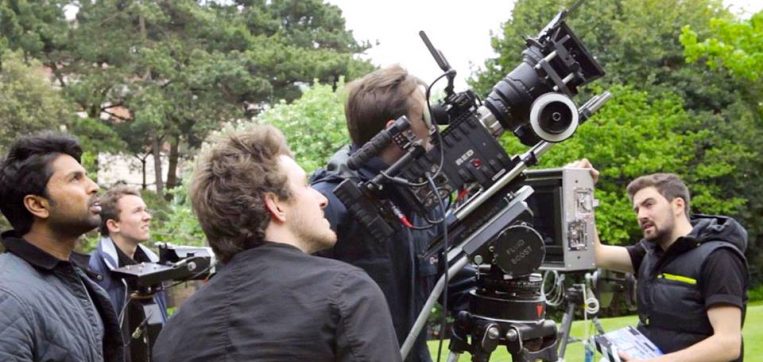
- Posted by info 09 Aug
Top Tips for Getting Into the Film, TV or Animation Industry
The film and TV industry is one that many dream of joining from an early age, with the barrage of TV shows and feature films reinforcing the idea that it’s the pinnacle of society – a glamorous world of exotic filming locations and exciting looking production kit. However, this view is prelapsarian at best, but not in the manner of negativity, rather a naivety that hides the marvelous world that this industry actually is.
Video and animation production companies, such as ourselves here at LoveLove Films, are desperate to generate more awareness for this profession of ours, and want to help others reach this world, for we weren’t always in it ourselves. Thus, we’ve created this little guide to offer some pointers to hopefully aid you in your endeavors.
Make sure it’s where you want to be
As with any industry, there’s no point pursuing a career in it unless you are sure that it’s where you want to be, for even the most seemingly exciting fields contain countless hours of repetitive and mind-numbing work that you have to be prepared to endure. This is particularly relevant for the film and TV industry, because, as was mentioned before, it is typically romanticised in many people’s eyes, leading them to believe that they want to be a part of it, without truly knowing what the job is like – for it is a job after all:
‘If you love television, then making a television program is a wonderful, exciting, rewarding, challenging thing to do. But that doesn’t change the fact that much of the time, most jobs in television are just that – jobs. Like any other jobs, they involve long periods of doing dull, repetitive or menial work. The vast majority of the people in the production office are doing precisely the kind of work that students usually hate. Cataloguing tapes. Printing out contracts. Filing paperwork. Doing research. Paying invoices. Updating databases. There’s a lot of sitting around doing nothing.’
– Alan McKee, Head of the Bachelor of Creative Industries (Television) at Queensland University of Technology (1)

Brendan from BU on Placement helping team with research
Building a relevant CV
These days, CVs are arguably the most vital part of a job application, as it profiles your experience, aspirations and qualifications, and is therefore the collation of all your tangible achievements, with a few of the intangibles thrown in for good measure as well. Therefore, to have a successful and complete CV you need to have stuff to actually put on it, so things such as qualifications, experience and placements are excellent to add to it, as they can showcase both your academic and practical skillset.
However, going to a university or college isn’t a requirement for the film or TV businesses, though it certainly helps, especially if you choose more practical courses or are aiming for a career in animation or other craft based sectors, as the skills honed there will be worthwhile and certainly give you a good overview to the production sectors Here is a great Podcast from the BBC on getting into TV which discusses different routes in great detail and well worth a listen!
In addition to all of this, make your CV relevantly unique to you, as you’re, after all, applying to join a creative industry, so include any artistic flair that you find appropriate:
‘One of the best CVs we ever had was an animation about us and why this guy wanted to work with us. The whole office ended up watching his animation, as it was so fun and quirky and he had put so much effort in. We didn’t have a job opening at the time, but we got him in for an interview, he shined and we made a job for him – he now works full time!’
– Georgina Hurcombe, Producer/Managing Director, LoveLove Films
Finally, your CV, and all that it entails, needs to be relevant to the role that you’re applying for, it needs to show your passion – no one will hire you if you’re not bothered – and, obviously, you have to get the basic structure and presentation of it correct, as any mistakes or inaccuracies won’t give a good impression, and it’ll most likely be rejected.
Work experience
Work experience is invaluable, as it allows you to gain the experience that can’t always be taught, as well as giving you a sense for the environment and day to day life of video, film and animation production companies. Here at LoveLove Films, we take on selected students through our New Talent Placement Scheme, which gives people a chance to work within an independent production company, trying out various different aspects of production, from research to animation to on-set runner roles – see lovelovefilms.com/contact/new-talent-placement-scheme/ for more details.
Other great work experience initiatives are run by the likes of the BBC, ITV, Blue Zoo to name a few. Do take a look at Creative Skillset who have some great links and resources: http://creativeskillset.org/creative_industries/tv/ways_into_the_industry
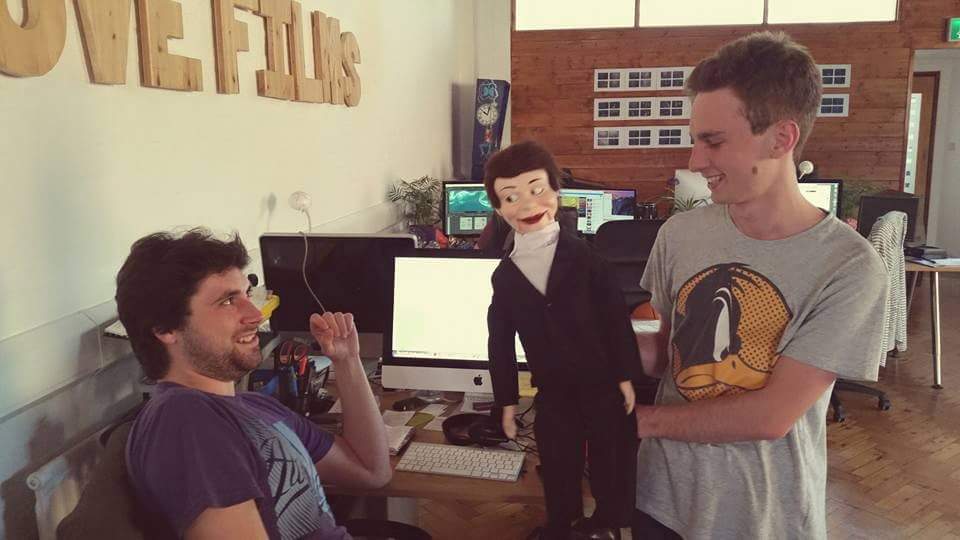
Tip: Be friendly, willing to learn and make yourself memorable – we still remember placement Tom and his ventriloquism!
Networking
As has been previously mentioned, the film, TV and animation business can be rather difficult to break into, so anything you can do is of great benefit. Something that’s particularly beneficial (and this goes for all other industries as well) is networking: to ‘interact with others to exchange information and develop professional or social contacts’ (2). Networking is one of the most vital points in this guide, as having personal contacts throughout the industry is an invaluable tool that will open up so many more opportunities for you.
To create this personal web, simply talk to everyone, including local film and animation studios, and make sure you keep in contact – a lot of this business has freelancers, so discovering new projects and jobs through the word of mouth is far better than simply waiting for jobs to turn up on your doorstep. Great networking events include volunteering and going to relevant TV, Film or Animation festivals as well as joining relevant industry associations.

The LoveLove Team at Digital Wave talking about their journeys into the industry
Utilising social media
You’ve probably heard this a thousand times, well, maybe not quite that many, but still a lot, nevertheless, if you’re not using social media and other digital platforms to further your professional career, then you’re missing out one of the critical aspects of today’s business world.
However, the internet is a minefield, and can cause you more harm than good if you’re not careful or considerate of your actions. One of the first things to do is to create separate private and professional accounts, so that your employer, or future employer, can’t view any of your personal, and potential unsavoury, posts, and so that your public, professional account can be used to promote your work and network with other professionals. This professional account of yours can then be used to join a variety of groups and chats, which can range from ones that’ll notify you of available jobs, to competitions and finding other people for your projects.
Find a mentor
When attempting to enter an industry, you cannot be expected to know everything, so any way through which you can gain some extra tips is indispensable. One excellent way is by finding mentor – a generally more senior and established member of the film, TV and animation business – to impart upon you some of their first-hand knowledge of the minutiae of the industry, alongside any general advice that they might have for you:
‘Finding a mentor is a great way to improve your knowledge base and contacts. When I was younger, I was forever reaching out to seniors and asking them for tips and advice, and I now mentor several young people. I’m always flattered when people ask me to mentor them, and I know lots of other MDs and seniors are more than happy to mentor young people. Just remember to set up meetings or ask questions in monthly emails, rather than bombarding your mentors who will often be busy.’
– Georgina Hurcombe, Director/Producer/Managing Director, LoveLove Films
Unless you already know someone in a relevant field for you, and they’re willing and able to mentor you, then you’ll need to reach out and contact local film, TV and animation companies to see if there is anyone there who would be able to – a mentor isn’t going to knock on your door, you’ve got to knock on theirs.
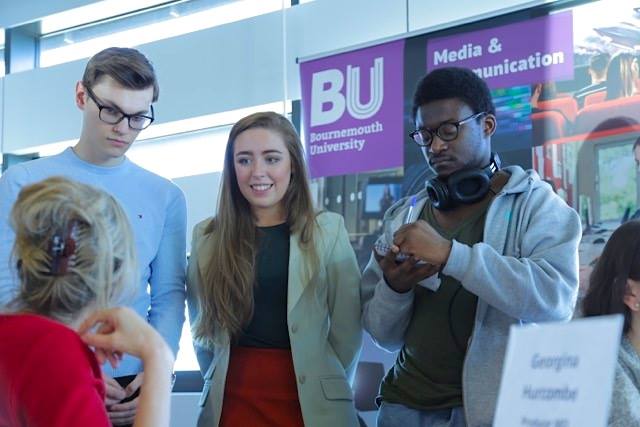
LoveLove MD Georgina Hurcombe talking to students at Bournemouth University
Create your own work
Aside from helping you discover what you specifically enjoy about filmmaking, creating your own projects shows others that you’re passionate, resourceful, and actually have an indication of what it’s all about. Additionally, through producing your own work, you’ll have the opportunity to learn from your inevitable mistakes, which will help you develop as a person, and add to your bank of first-hand experiences in the industry.
Ultimately, whether it’s an actual production or something else such as writing a blog, drawing, taking pictures etc, you’ll be doing something that you truly enjoy, so when you enter your work into competitions and festivals, and share it through other means, in order to receive feedback from a variety of audiences, you will have a better taste for what life could be like for you, and you’ll also be able to add it to your CV, thus highlighting your passion and drive to create:
‘I would think that if someone has posted their own film, been resourceful enough to create, writing a blog or their own site, I’d think great, I’d want to meet that person’
– Getting into TV Podcast, BBC (3)
Show what you can do
Due to the highly competitive nature of the film, TV and animation business, standing out for the right reasons is how you’ll be able to progress and have a more successful and prosperous career. The best way of achieving this is by ‘going the extra mile’, and excelling at what you do, because you can’t ask for much more than that, and just saying that you have the ability to do something means nothing, unless you are able to provide evidence through your actions:
‘It may be true – but telling everybody about it isn’t going to do any good. Nobody’s going to say, ‘Oh, Alan just told me he’s a great director. I had no idea – we should let him direct the shoot next week’. Rather, what you need to do is show people how good you are. Do this by excelling at everything you’re asked to do – and by sometimes going a little further’
– Alan McKee, Head of the Bachelor of Creative Industries (Television) at Queensland University of Technology1
Also, no matter what you’ve achieved on your own in the past, you need to be able to show a willingness to learn your craft and an understanding that you need to learn from experienced industry professionals, the BBC’s Getting Into TV Podcast puts it rather nicely:
‘Sadly, a lot of students do come out of university expecting to get a job as a producer/director straight away, and I’ve even offered for people to come in and run, and they’ve said, ‘No, I’m a researcher’, and you think, well, no of course you’re not, you haven’t got any credits or experience. I would actually think if somebody has posted their own film, been resourceful enough to create, you know writing a blog or their own site, I would think great, I want to meet that person, but obviously I might have to manage their expectations that they will have to go through a certain career path and start at the bottom essentially, but you’re always looking for people who’ve got creative skills like that, who’ve got a lot of initiative and who are self-starting, so, on the plus side,I’d definitely want to meet somebody like that, but whether I’d offer them a PD job is another matter’
‘It’s a fine line … you don’t want to give the impression that you’re not willing to do the menial jobs … you’ve got to be happy to start at the bottom.’
– Elsa Sharp, talent manager at Dragonfly TV, author of How to Get a Job in TelevisionPlacement Tom getting hands on experience on shoot
Learn to drive
It’s just incredibly useful, especially for runners – some jobs are even decided by whether or not the candidate cans drive3.
Hopefully, this guide has provided some helpful tips that’ll aid you through the process of getting into the film, TV and animation industries, and just remember to put in plenty of effort and speak to everyone.
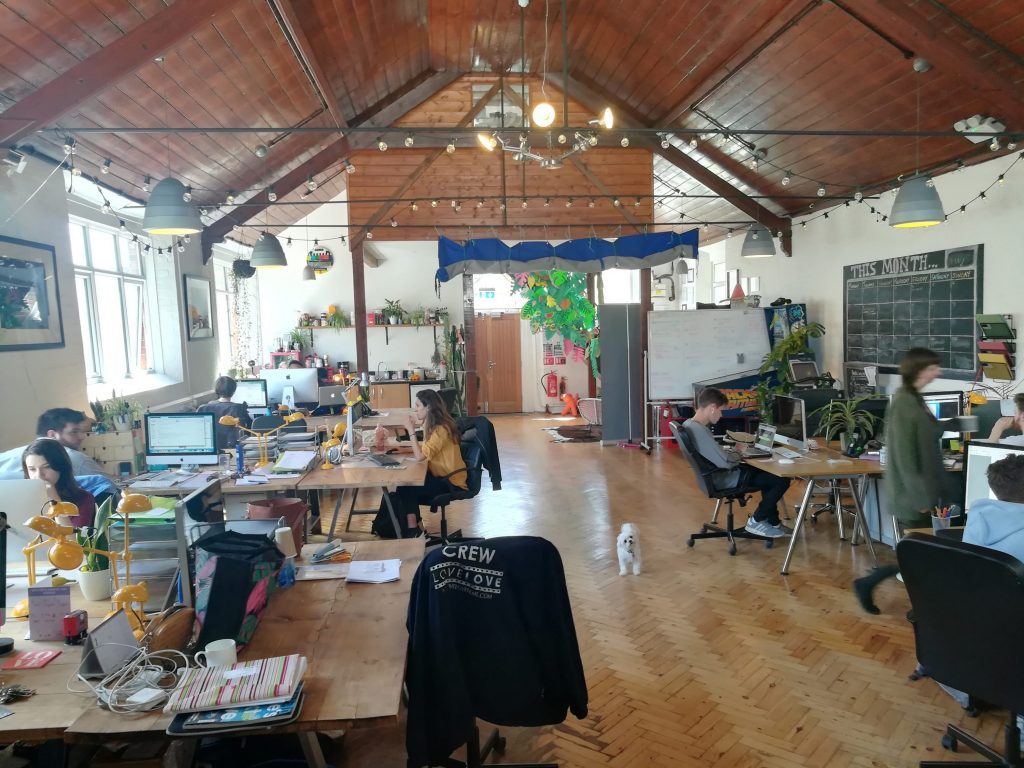
Our studio Cinechrome Studios
To find out more about our New Talent Placement Scheme, click here.
Testimonials from previous placements:
“I’ve very recently finished a 4-week placement at LoveLove Films and I had a brilliant time! The whole team were very encouraging, happy to answer any questions I had and gave me some advice which I can take forward with me in years to come! I learnt what it was like to work for an independent media production company whilst doing some research work for them as well!
Thank You to the LoveLove team for an awesome month and helping me get my media career started. Best of luck with all of your future projects! It was lovely to get to know you all.” – Hannah Barley
“I would highly recommend doing a placement at LoveLove films; I learnt so much and from a really friendly and creative team who entrusted me to complete tasks most companies would not give an intern. From creating research mood boards to discussing my current filmic works, LoveLove films have supported me in so many ways, and is an experience I will draw upon for the rest of my career.
I wish LoveLove Films the best of luck with their future projects and hope to work with you all again soon!” – Josh Howard
Sources:
(=1 https://www.flowjournal.org/2007/08/the-seven-steps-to-getting-a-job-in-television/ – Accessed 07/08/183
2 https://en.oxforddictionaries.com/definition/network – Accessed 07/08/18
3 http://www.bbc.co.uk/academy/production/article/art20130702112135536 – Accessed 07/08/18

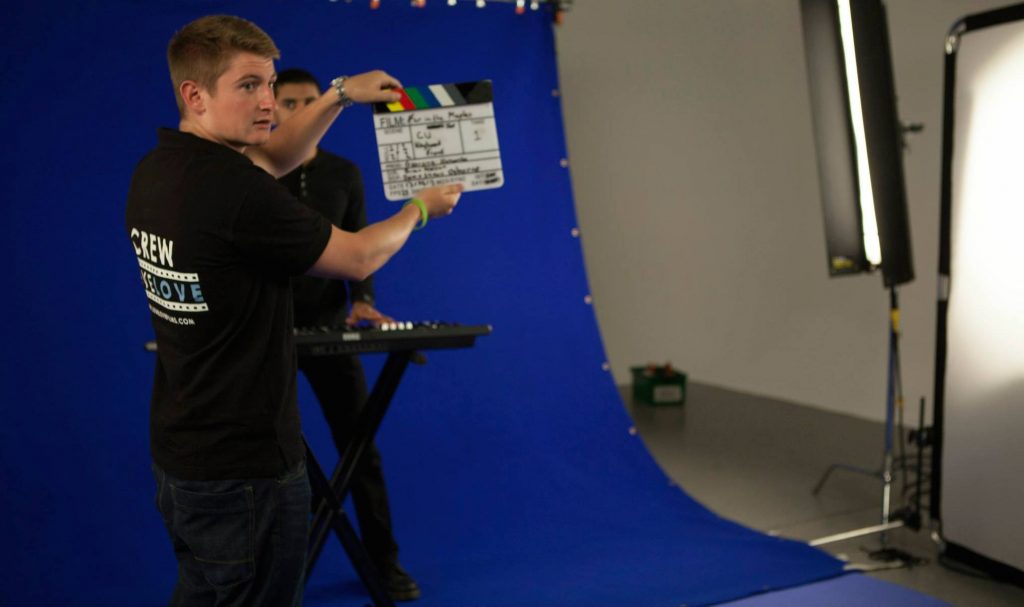
Post Comments 0